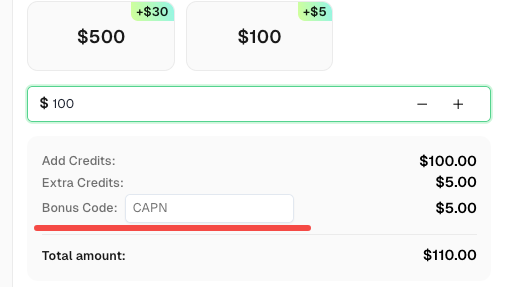How to Use AI for Web Scraping and Solving Captcha

Sora Fujimoto
AI Solutions Architect
26-Mar-2024
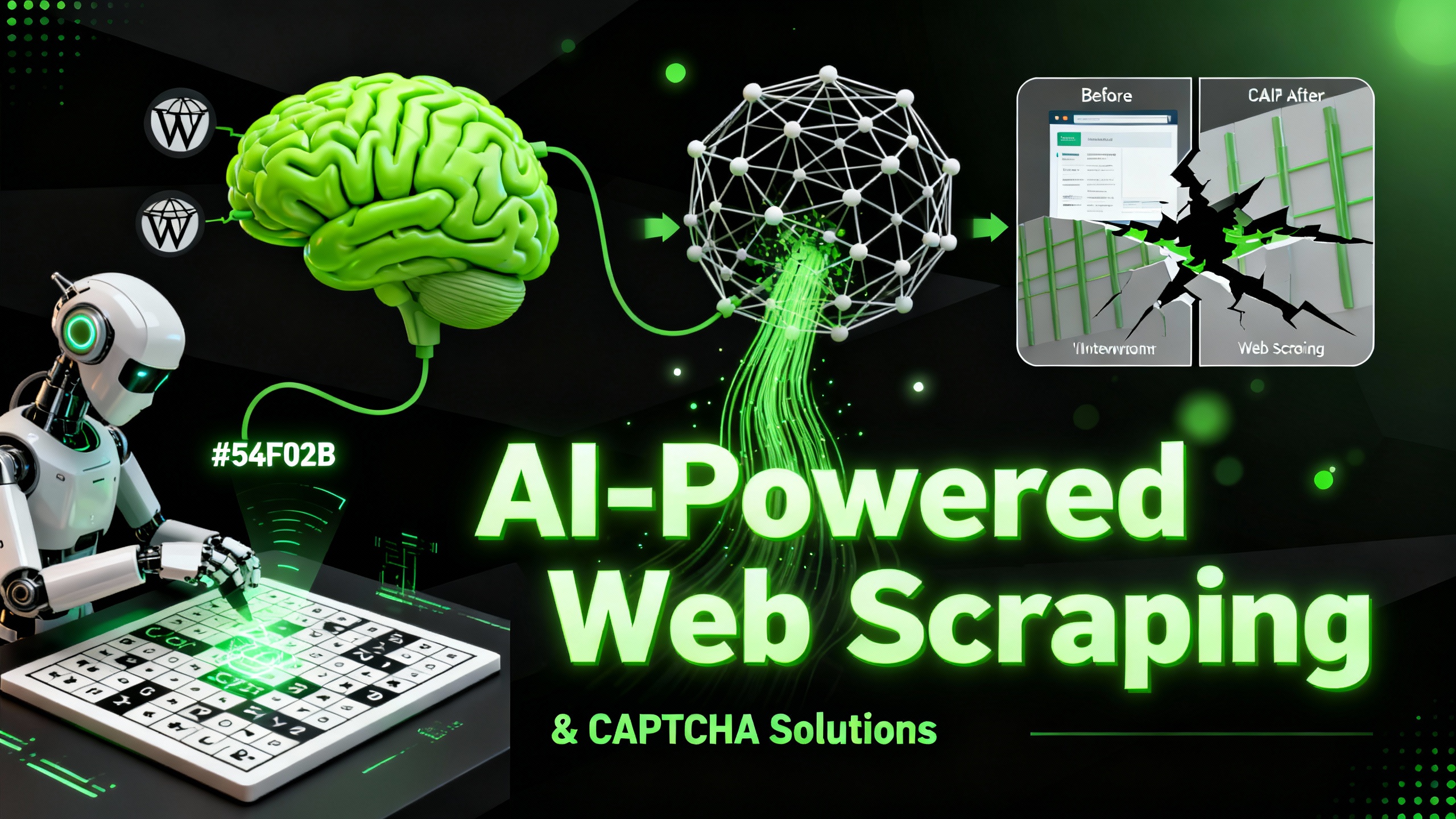
Web Scraping is a powerful technique for acquiring massive amounts of online data. However, traditional scraping methods often fall short when faced with dynamic websites, complex structures, and the most vexing challenge: CAPTCHA (Completely Automated Public Turing test to tell Computers and Humans Apart). The rise of Artificial Intelligence (AI) and Machine Learning (ML) is fundamentally changing this landscape, offering revolutionary solutions to overcome these obstacles.
This article will delve into the limitations of conventional web scraping and focus on how to leverage AI technology to enhance scraping capabilities, particularly how to achieve automated solving of CAPTCHA issues through professional services like CapSolver, thereby building a more efficient and stable data collection system.
I. Analyzing the Limitations of Conventional Web Scraping
While traditional crawlers excel at processing static web pages, they face multiple challenges in the complex modern web environment:
- Difficulty Adapting to Dynamic Websites: Modern websites heavily use technologies like AJAX to load content dynamically. Traditional crawlers rely on HTTP requests to fetch HTML and cannot execute JavaScript, thus failing to capture dynamically generated data.
- Sensitivity to Website Structure Changes: Even minor changes to a website's structure (DOM structure) can completely break traditional crawlers that rely on specific selectors, requiring significant time for maintenance and updates.
- Limited Data Extraction Accuracy: The accuracy of traditional crawlers is tightly coupled with the website structure. Structural changes directly impact data accuracy. Furthermore, the lack of intelligent validation mechanisms makes it difficult to ensure the reliability of extracted data.
- Insufficient Scalability and Flexibility: When dealing with large-scale, multi-source data collection tasks, the management and scaling of traditional crawlers become complex and time-consuming.
- Ineffectiveness Against Advanced Anti-Scraping Mechanisms: Websites deploy advanced anti-scraping technologies such as IP blocking, rate limiting, honeypots, and CAPTCHA. Traditional tools lack the ability to simulate human behavior, making it difficult to effectively bypass these barriers.

II. AI Empowerment: Revolutionizing the Web Scraping Workflow
AI-driven Web Scraping utilizes machine learning algorithms to make the data extraction process more adaptive and accurate.
1. Intelligent Adaptation to Dynamic Content and Complex Structures
AI crawlers can analyze the web page's Document Object Model (DOM), and even use Computer Vision techniques to analyze the visual layout of the page, autonomously identifying and understanding the web structure. This capability allows crawlers to:
- Dynamic Content Adaptation: "See" and process dynamically loaded content like a human, without relying on a fixed HTML structure.
- Robustness to Structural Changes: Even if the website structure changes, the AI model can dynamically adjust its extraction logic, ensuring the accuracy of data collection.
2. Overcoming Anti-Scraping Mechanisms and Enhancing Scalability
AI technology effectively counters anti-scraping mechanisms by simulating human behavior:
- Behavioral Simulation: AI crawlers can simulate human browsing speed, mouse movement trajectories, and click patterns, significantly reducing the risk of being identified as a bot by anti-scraping systems.
- Efficient Scaling: ML-driven automation and parallel processing capabilities allow AI crawlers to efficiently collect data from massive sources, greatly enhancing scalability.
III. AI Solving CAPTCHA: Automation and Professional Services
CAPTCHA is one of the most critical applications of AI-empowered scraping. The strategy for solving CAPTCHA primarily involves building custom models or using professional API services.
1. Custom Machine Learning Models
Developers can train deep neural networks and other machine learning models to recognize and solve CAPTCHA. This method requires large labeled datasets and continuous model maintenance to adapt to constantly changing CAPTCHA styles. While technically feasible, the high time cost and maintenance cost make it unsuitable for most enterprise-level applications.
2. Professional CAPTCHA Solving API: CapSolver
Outsourcing the CAPTCHA solving task to a professional service like CapSolver is the most mainstream and efficient solution today. CapSolver leverages its powerful AI algorithms and large-scale infrastructure to provide a high-success-rate, low-latency CAPTCHA solving service.
CapSolver abstracts the complex CAPTCHA solving process into simple API calls, allowing developers to focus their efforts on core data logic.
Redeem Your CapSolver Bonus Code
Don’t miss the chance to further optimize your operations! Use the bonus code CAPN when topping up your CapSolver account and receive an extra 5% bonus on each recharge, with no limits. Visit the CapSolver Dashboard to redeem your bonus now!
Python Code Example: Solving CAPTCHA with CapSolver
CapSolver supports various CAPTCHA types, including reCAPTCHA V2 and reCAPTCHA V3. Below is a general Python asynchronous task example demonstrating how to create a task and poll for the result.
python
import requests
import time
import json
# TODO: Set your configuration
API_KEY = "YOUR_API_KEY" # Your CapSolver API Key
SITE_KEY = "YOUR_SITE_KEY" # Site Key of the target website
SITE_URL = "YOUR_TARGET_URL" # URL of the target website
TASK_TYPE = "ReCaptchaV2TaskProxyLess" # Task type, e.g., ReCaptchaV2TaskProxyLess
def solve_captcha_async(api_key, site_key, site_url, task_type):
# 1. Create Task
create_task_payload = {
"clientKey": api_key,
"task": {
"type": task_type,
"websiteKey": site_key,
"websiteURL": site_url
# V3 tasks require the additional "pageAction" parameter
}
}
response = requests.post("https://api.capsolver.com/createTask", json=create_task_payload)
response_data = response.json()
task_id = response_data.get("taskId")
if not task_id:
print(f"Failed to create task: {response.text}")
return None
print(f"Task ID: {task_id}. Waiting for result...")
# 2. Get Result
while True:
time.sleep(3) # Recommended delay is 3 seconds
get_result_payload = {"clientKey": api_key, "taskId": task_id}
result_response = requests.post("https://api.capsolver.com/getTaskResult", json=get_result_payload)
result_data = result_response.json()
status = result_data.get("status")
if status == "ready":
# Successfully obtained the Token
token = result_data.get("solution", {}).get('gRecaptchaResponse')
print(f"CAPTCHA solved successfully! Token: {token}")
return token
elif status == "failed" or result_data.get("errorId"):
print(f"Solving failed: {result_response.text}")
return None
# Task is still processing, continue waiting
# Example call (Please replace with your actual configuration)
# solved_token = solve_captcha_async(API_KEY, SITE_KEY, SITE_URL, TASK_TYPE)IV. Solution Comparison: CapSolver API vs. Custom Models
| Feature | CapSolver (Professional API Service) | Custom Machine Learning Model |
|---|---|---|
| Technical Foundation | Powerful AI algorithms, large-scale infrastructure | Relies on the developer's own ML tech stack |
| Types Solved | Covers all major complex CAPTCHA (reCAPTCHA V2/V3, Cloudflare Turnstile, etc.) | Limited to CAPTCHA types covered by the training set |
| Success Rate | High, continuously maintained and optimized by a professional team | Unstable success rate, easily affected by CAPTCHA variations |
| Maintenance Cost | Very Low, only API integration needs maintenance | Very High, requires continuous resource investment for model training, data labeling, and code updates |
| Deployment Speed | Fast, plug-and-play, integration completed in minutes | Slow, requires weeks to months for development, training, and deployment |
| Scalability | Extremely High, CapSolver platform handles all scaling | Dependent on internal computing resources and architectural design |
V. Frequently Asked Questions (FAQ)
Q1: How do AI crawlers simulate human behavior to bypass anti-scraping?
A: AI crawlers learn from and simulate the characteristics of real user behavior by:
- Randomized Delays: Introducing random waiting times between requests.
- Mouse Trajectory Simulation: Simulating natural mouse movements and click trajectories on the page.
- Browser Fingerprint Spoofing: Using toolkits to spoof or rotate browser fingerprints, User-Agents, and HTTP headers to appear as a legitimate browser session.
Q2: Does CapSolver support all types of CAPTCHA?
A: CapSolver is committed to supporting all mainstream and complex CAPTCHA types on the market, including reCAPTCHA V2/V3, image recognition CAPTCHA, and Cloudflare Turnstile. The service is continuously updated to counter new anti-scraping mechanisms.
Q3: Is it necessary to provide a proxy when using the CapSolver API?
A: CapSolver offers ProxyLess task types (e.g., ReCaptchaV2TaskProxyLess), meaning you do not need to provide your own proxy; CapSolver uses its built-in premium proxies to complete the task. This greatly simplifies integration and maintenance. However, if you prefer to use your own proxy, you can choose a task type that allows proxy information.
Q4: How do I determine if my scraping task needs AI or a professional CAPTCHA service?
A: You should consider introducing AI or a professional service if your scraping task encounters any of the following:
- The target is a website with dynamically loaded content.
- The crawler frequently fails due to structural changes.
- You frequently encounter reCAPTCHA V2/V3 or other complex CAPTCHA during scraping.
- You require large-scale, high-concurrency data collection.
Conclusion
AI technology is reshaping the future of web scraping. By utilizing AI-driven crawlers, developers can overcome the limitations of traditional methods and achieve efficient adaptation to dynamic websites and complex structures. More importantly, by integrating a professional CAPTCHA Solving Service like CapSolver, the problem of CAPTCHA can be solved automatically and with a high success rate. Integrating AI into your scraping workflow is key to ensuring high efficiency, high stability, and scalability in data collection, providing continuous and reliable data support for business intelligence and decision-making.
References
Compliance Disclaimer: The information provided on this blog is for informational purposes only. CapSolver is committed to compliance with all applicable laws and regulations. The use of the CapSolver network for illegal, fraudulent, or abusive activities is strictly prohibited and will be investigated. Our captcha-solving solutions enhance user experience while ensuring 100% compliance in helping solve captcha difficulties during public data crawling. We encourage responsible use of our services. For more information, please visit our Terms of Service and Privacy Policy.
More
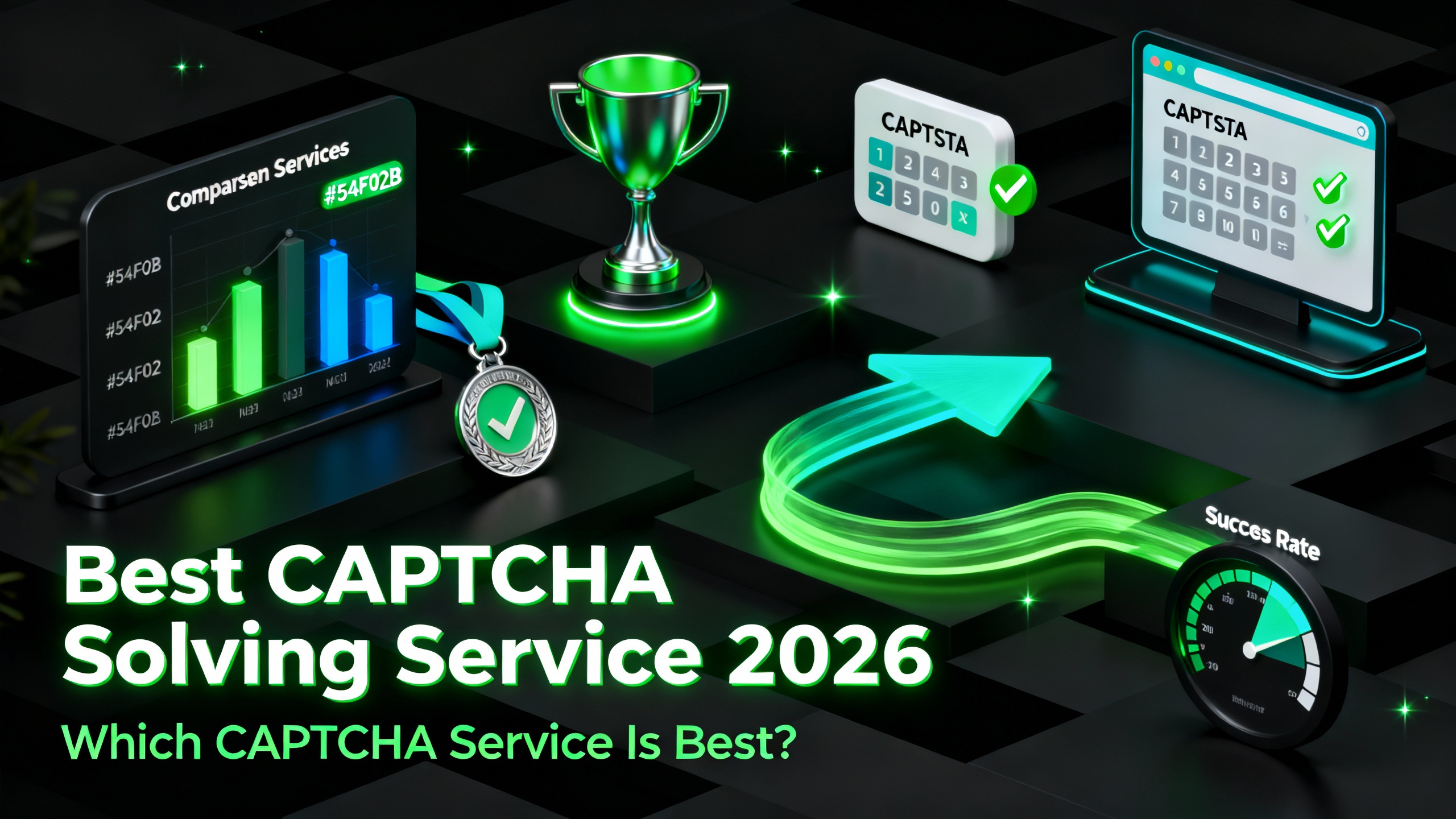
Best Captcha Solving Service 2026, Which CAPTCHA Service Is Best?
Compare the best CAPTCHA solving services for 2026. Discover CapSolver's cutting-edge AI advantage in speed, 99%+ accuracy, and compatibility with Captcha Challenge

Lucas Mitchell
30-Oct-2025
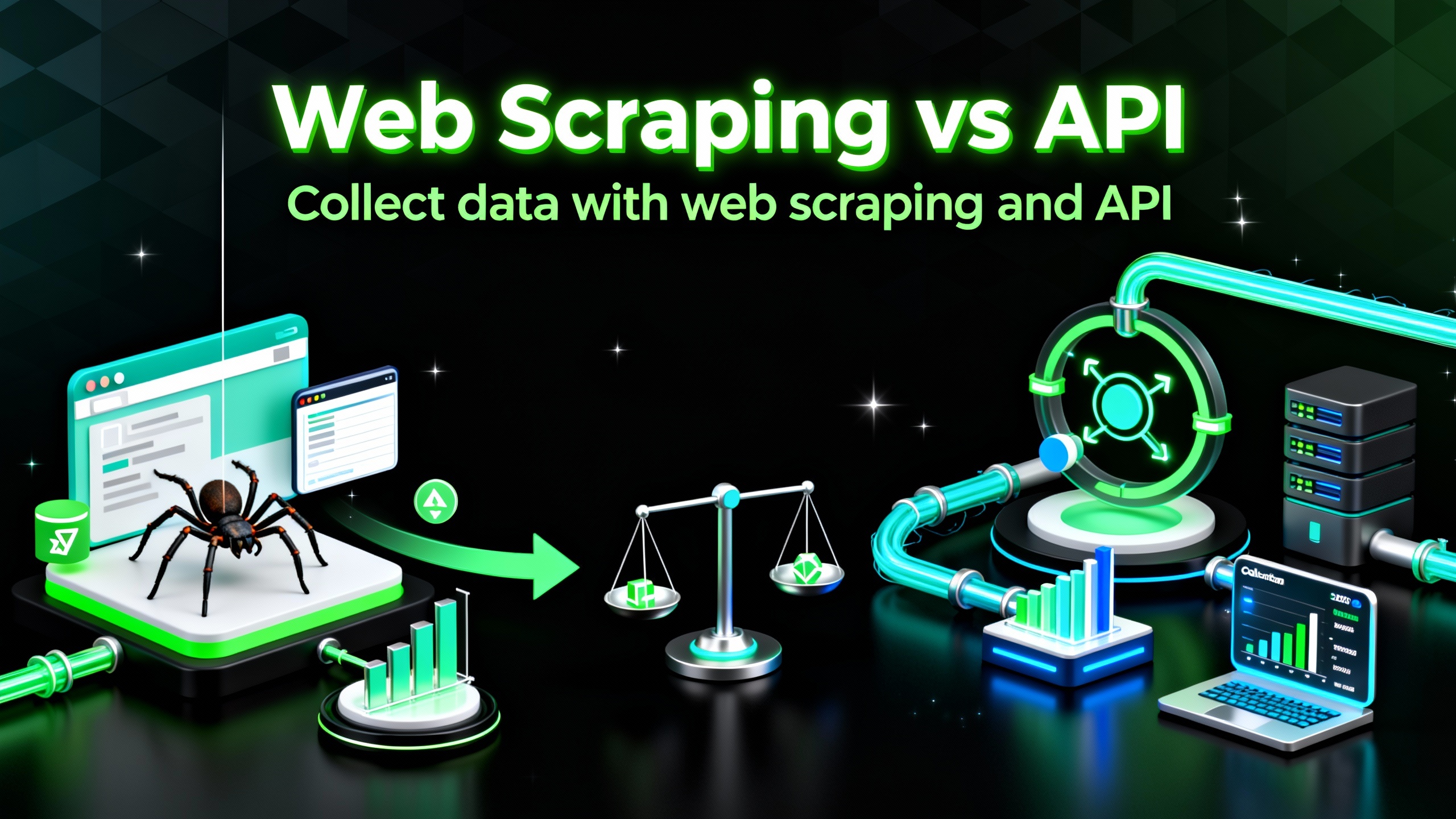
Web Scraping vs API: Collect data with web scraping and API
Learn the differences between web scraping and APIs, their pros and cons, and which method is best for collecting structured or unstructured web data efficiently.

Rajinder Singh
29-Oct-2025

Auto-Solving CAPTCHAs with Browser Extensions: A Step-by-Step Guide
Browser extensions have revolutionized the way we interact with websites, and one of their remarkable capabilities is the ability to auto-solve CAPTCHAs..

Ethan Collins
23-Oct-2025
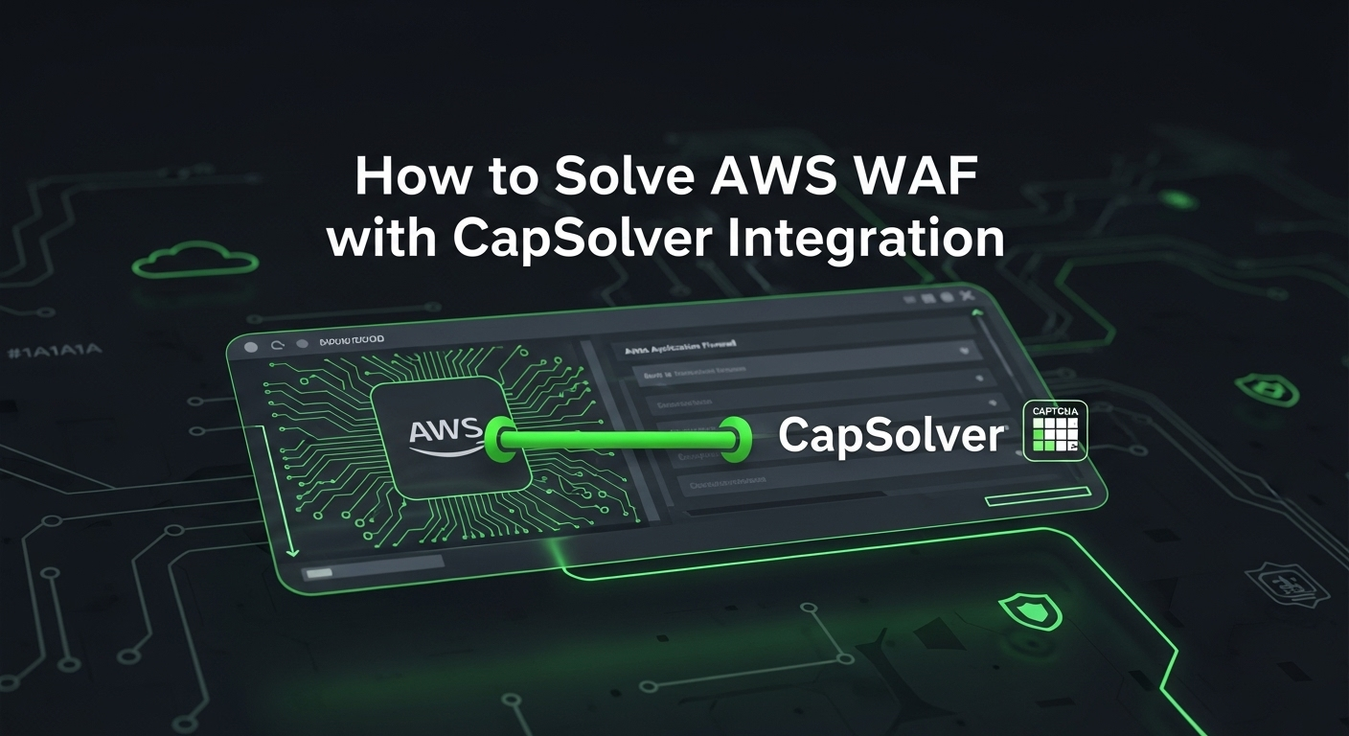
Solving AWS WAF Bot Protection: Advanced Strategies and CapSolver Integration
Discover advanced strategies for AWS WAF bot protection, including custom rules and CapSolver integration for seamless CAPTCHA solution in compliant business scenarios. Safeguard your web applications effectively.

Lucas Mitchell
23-Sep-2025
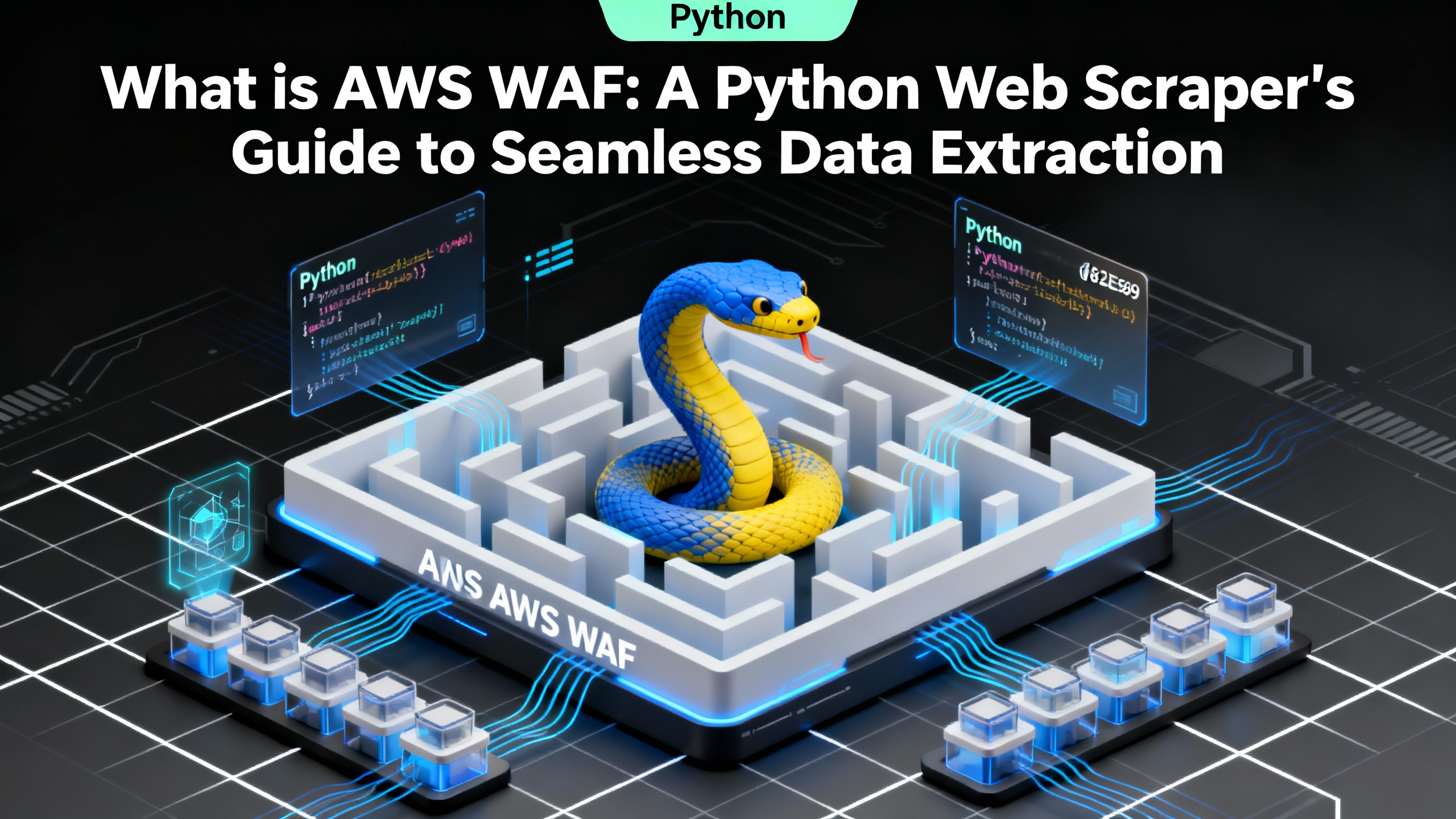
What is AWS WAF: A Python Web Scraper's Guide to Seamless Data Extraction
Learn how to effectively solve AWS WAF challenges in web scraping using Python and CapSolver. This comprehensive guide covers token-based and recognition-based solutions, advanced strategies, and code examples fo easy data extraction.

Lucas Mitchell
19-Sep-2025
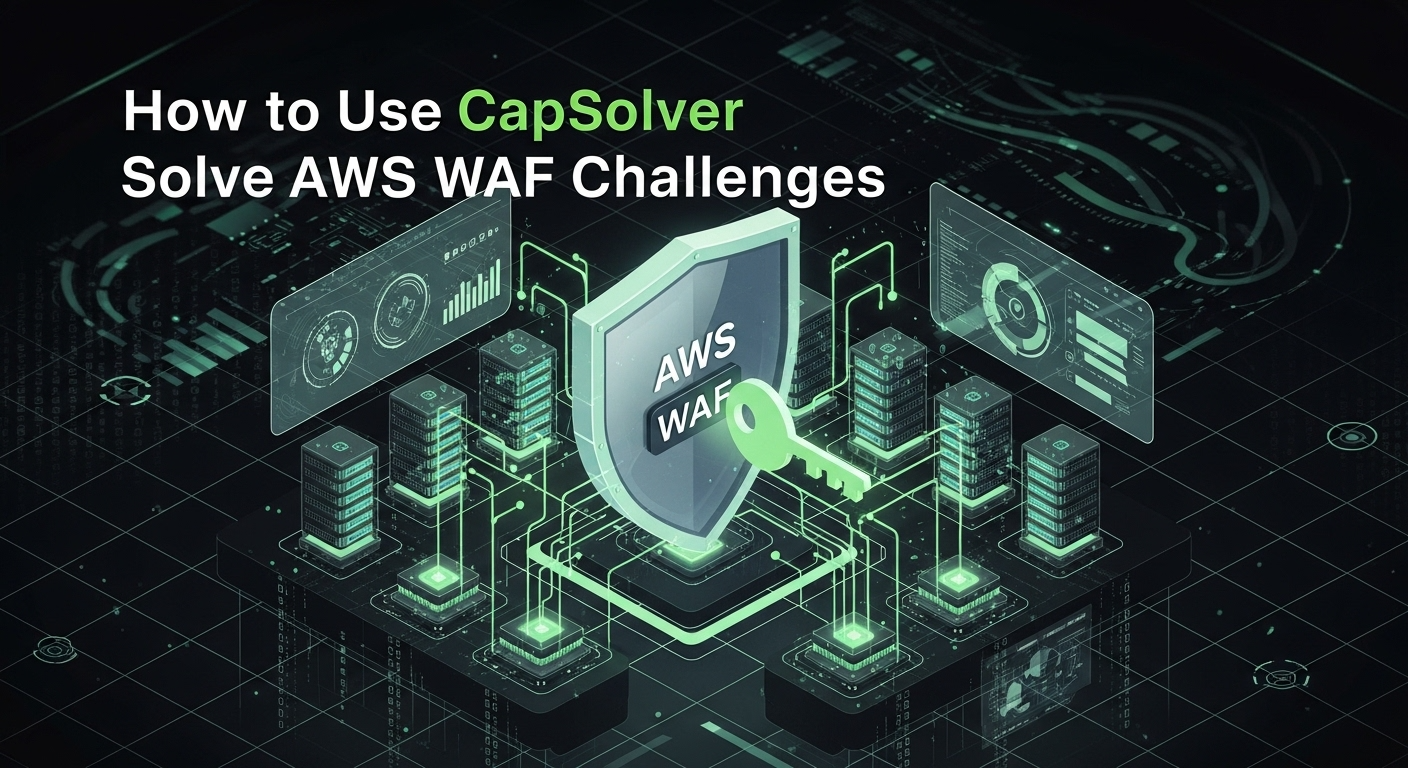
How to Solve AWS WAF Challenges with CapSolver: The Complete Guide in 2025
Master AWS WAF challenges with CapSolver in 2025. This complete guide offers 10 detailed solutions, code examples, and expert strategies for seamless web scraping and data extraction.

Lucas Mitchell
19-Sep-2025


